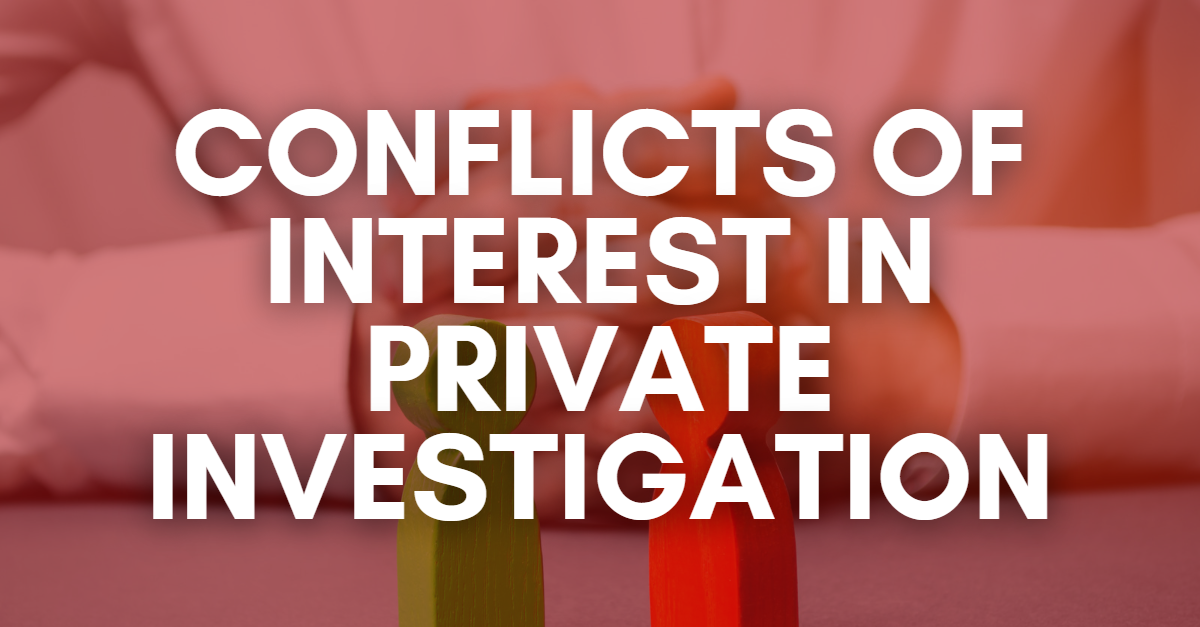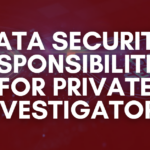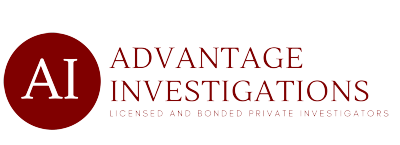In the field of private investigation, conflicts of interest can arise and should be avoided at all costs. Maintaining a high level of ethics is paramount to upholding professionalism and integrity. Conflicts of interest are no different and considering them carefully is critical. These conflicts can arise in various situations and PIs must manage them diligently. Otherwise ensuring that investigations are conducted in an ethical and unbiased manner can prove difficult or even impossible. In this article, we will explore the significance of conflicts of interest in private investigation and provide insights on how to navigate them effectively.
Understanding Conflicts of Interest
Conflicts of interest occur when a private investigator’s personal, professional, or financial interests clash with their duty to act in the best interest of their client or the investigation. These conflicts can, for instance, compromise objectivity and potentially undermine the integrity of the investigation.
Key considerations for managing conflicts of interest

To maintain ethical standards in private investigation, it is crucial to address conflicts of interest appropriately. Here are some essential considerations:
- Full disclosure: Private investigators must be transparent about any potential conflicts of interest. Since they could compromise their ability to conduct an objective investigation. This includes revealing any personal or professional relationships that may influence their judgment or decision-making.
- Independence and impartiality: Private investigators should strive to maintain independence and impartiality throughout the investigation process. They must ensure that their actions and recommendations are solely based on facts and evidence. That is to say, free from any bias or personal interest.
- Prioritizing client’s interests: Private investigators have a fiduciary duty to act in the best interest of their clients. They must prioritize their client’s needs and avoid engaging in activities that may compromise their loyalty or create conflicting obligations.
- Establishing ethical boundaries: It is crucial for private investigators to establish clear ethical boundaries to guide their professional conduct. Furthermore, these boundaries should address potential conflicts of interest and provide a framework for decision-making that prioritizes ethical considerations.
Seeking independent advice & self-assessment

- Seeking independent advice: In situations where conflicts of interest are complex or challenging to navigate, private investigators should consider seeking independent advice from legal professionals or industry associations. This can, for example, provide guidance and ensure compliance with ethical standards.
- Continuous self-assessment: Private investigators should regularly assess their own actions and decisions to identify and address any potential conflicts. This self-reflection and self-evaluation enable them to maintain a high level of ethical practice and adapt to evolving circumstances.
Effectively managing conflicts of interest is an integral part of ethical private investigation. By maintaining transparency and independence, and prioritizing their clients’ interests, private investigators can navigate potential conflicts while upholding their professional obligations. Establishing ethical boundaries, seeking independent advice when necessary, and engaging in continuous self-assessment contribute to maintaining the highest standards of ethical practice in private investigation. Moreover, by prioritizing integrity and ethical conduct, private investigators can build trust with their clients and ensure the reliability and credibility of their work.
Learn more about what we do and why you should hire an experienced private investigator. Simply click on this link to get in contact with one of our team members.










